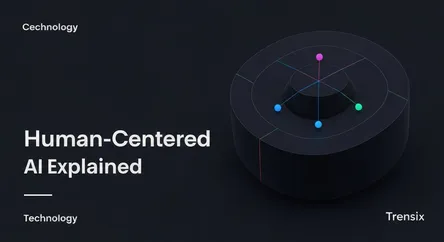Technology
Human-Centered AI Explained

Discover Human-Centered AI, an approach prioritizing human well-being, ethics, and values in the design and deployment of artificial intelligence.
What is it?
Human-Centered AI (HCAI) is an approach to artificial intelligence development that prioritizes human needs, values, and experiences. Instead of focusing solely on technical capabilities, HCAI aims to create AI systems that are reliable, safe, and trustworthy partners for people. This framework emphasizes designing AI to augment human intelligence and creativity, rather than simply replacing human roles. Key principles include ensuring fairness, transparency in decision-making, accountability for outcomes, and a high level of usability, making the technology accessible and beneficial for everyone.
Why is it trending?
As AI systems become more integrated into critical sectors like healthcare, finance, and transportation, concerns about their potential negative impacts have grown. Issues such as algorithmic bias, lack of explainability, and job displacement are major public concerns. Human-Centered AI is trending as a direct response, offering a pathway to develop AI responsibly. There is a growing demand from consumers, regulators, and developers for technology that is not only powerful but also ethical and aligned with societal good. This shift ensures that innovation proceeds with human well-being as its primary goal.
How does it affect people?
Human-Centered AI directly impacts daily life by creating more effective and user-friendly tools. It leads to AI applications that are intuitive assistants, from smarter medical diagnostic tools that support doctors to fairer hiring algorithms that reduce bias. For the average person, this means interacting with AI that is helpful, understandable, and respects their privacy and autonomy. By focusing on collaboration between humans and machines, HCAI fosters trust and aims to empower individuals, ultimately leading to technology that enhances human capabilities and improves quality of life rather than diminishing it.